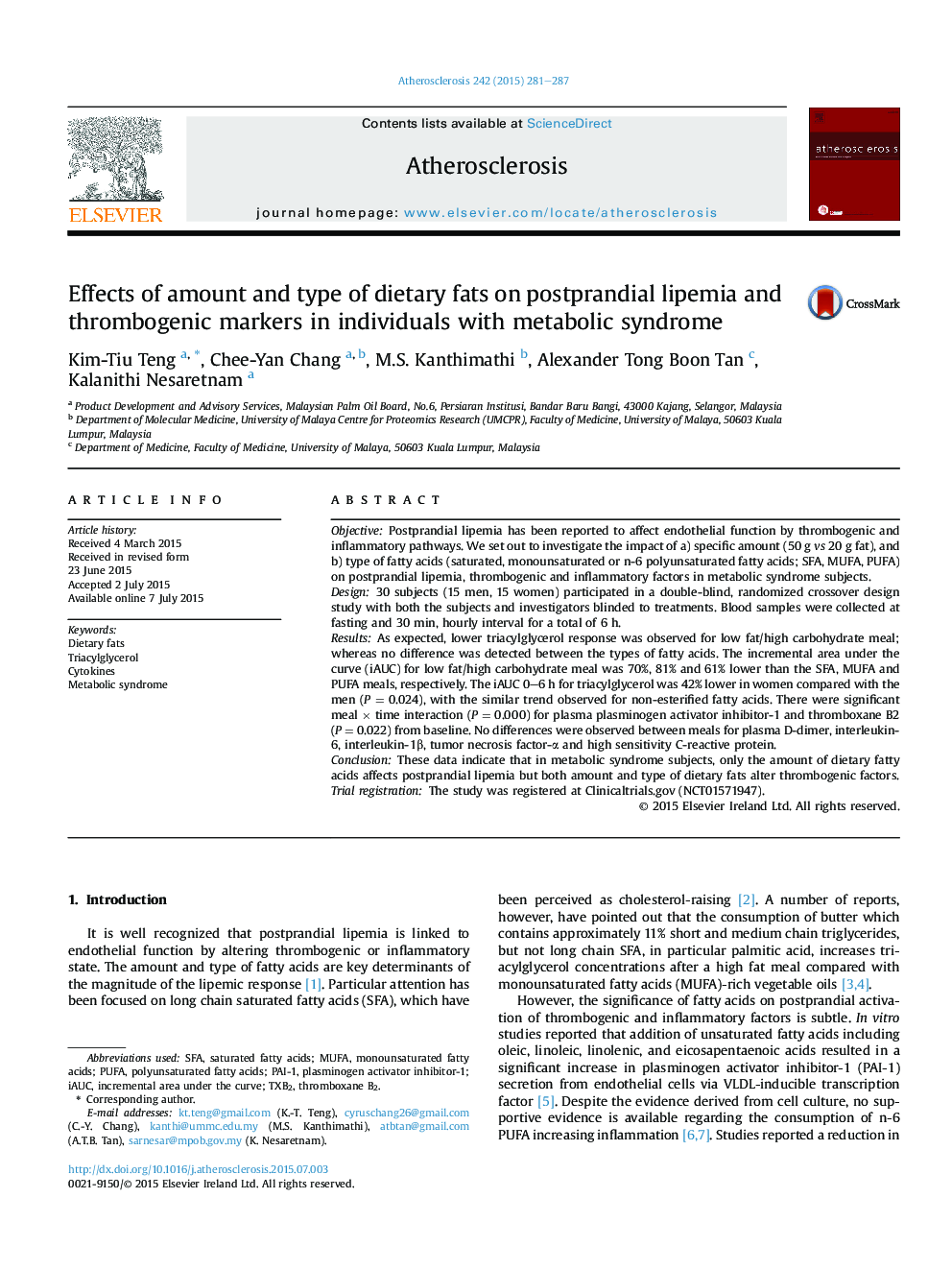| Article ID | Journal | Published Year | Pages | File Type |
|---|---|---|---|---|
| 5944068 | Atherosclerosis | 2015 | 7 Pages |
ObjectivePostprandial lipemia has been reported to affect endothelial function by thrombogenic and inflammatory pathways. We set out to investigate the impact of a) specific amount (50 g vs 20 g fat), and b) type of fatty acids (saturated, monounsaturated or n-6 polyunsaturated fatty acids; SFA, MUFA, PUFA) on postprandial lipemia, thrombogenic and inflammatory factors in metabolic syndrome subjects.Design30 subjects (15 men, 15 women) participated in a double-blind, randomized crossover design study with both the subjects and investigators blinded to treatments. Blood samples were collected at fasting and 30 min, hourly interval for a total of 6 h.ResultsAs expected, lower triacylglycerol response was observed for low fat/high carbohydrate meal; whereas no difference was detected between the types of fatty acids. The incremental area under the curve (iAUC) for low fat/high carbohydrate meal was 70%, 81% and 61% lower than the SFA, MUFA and PUFA meals, respectively. The iAUC 0-6 h for triacylglycerol was 42% lower in women compared with the men (P = 0.024), with the similar trend observed for non-esterified fatty acids. There were significant meal Ã time interaction (P = 0.000) for plasma plasminogen activator inhibitor-1 and thromboxane B2 (P = 0.022) from baseline. No differences were observed between meals for plasma D-dimer, interleukin-6, interleukin-1β, tumor necrosis factor-α and high sensitivity C-reactive protein.ConclusionThese data indicate that in metabolic syndrome subjects, only the amount of dietary fatty acids affects postprandial lipemia but both amount and type of dietary fats alter thrombogenic factors.Trial registrationThe study was registered at Clinicaltrials.gov (NCT01571947).
